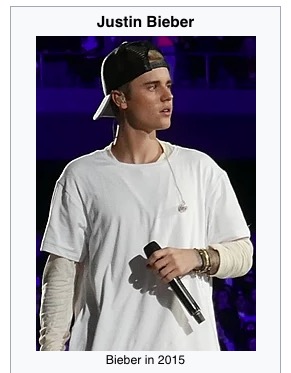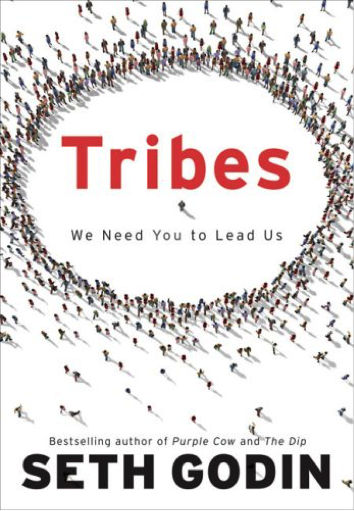In Tribes, Godin focuses us on our market. He wants us to wrestle with the question of who it is we are trying to lead.
Why Tribes?
Book titles are interesting. If books are properly named, they can orient us to their core message. Everybody Matters is a book about the value and dignity of everyone in the organization. Good to Great is about organizations that became excellent and how they got that way. Tribes could have been named Leadership or Leading Others but the title (and even the concept of) Tribes is steers our thinking. Godin does not advise us to try to lead everyone, but to speak only to a specific audience, like the chief of a tribe speaking a limited language to a limited number of people.
Tribes is Godin’s ode to leadership, but it is not exclusive to the leadership of people. His advice applies equally to the salesman who is thinking about reaching the people who need his product or the activist who is speaking to people who want to make the world a better place.
Godin provided some counterintuitive principles for success in leading your tribe. What follows are his most important concepts.
Stop Speaking to Everyone
First, to lead your tribe, stop talking to everyone. You don’t need everyone to agree with you. To win an election, you need better than 50% of the population, but, “to lead a tribe, no such rule applies. All you need to do is motivate people who choose to follow you. The rest of the population is free to ignore you or disagree with you or move on.”[i]
You Choose Your Tribe
John Kotter. Lady Gaga. Al Sharpton. Pope Francis. Angela Duckworth. Kim Kardashian. Justin Beiber. Maxine Waters. The Dalai Lama. Colin Kaepernick. Rush Limbaugh. Meghan Markel. Samantha Bee. What do these people have in common? Not a lot. But they each lead their own tribe. Each of these people speak to a different audience. They speak to their audiences as if they are on different radio frequencies.
As a business professor, I pay attention to John Kotter and Angela Duckworth. Kotter, a Harvard professor, is the leading authority on organizational change and I use 4 of his books in my classes. Duckworth, a University of Pennsylvania professor, is the leading authority on grit, the academic term for perseverance. I pay attention to what they say because their ideas are important in my world. On the other hand, I don’t care what Meghan Markel is doing and I don’t keep up with the Kardashians.
Why does this matter? As Godin explained: “You get to choose the tribe you will lead. Through your actions as a leader, you attract a tribe that wants to follow you. That tribe has a worldview that matches the message you’re sending.”[ii]
That is important to understand. It is important to leaders. It is important to salesmen too. If you are selling insurance, the only people who are really listening are those in the market for insurance. Those who already have coverage will not hear your message. In the same way, I ignore Lady Gaga’s tweets. She is just not relevant to me. I am not listening to her.
How silly would it be if Justin Beiber felt compelled to lead me? What if he just couldn’t sleep at night unless he knew that this middle-aged professor was a fan? I can’t name a single Justin Beiber song and this would be a complete waste of his time, but salesmen make this mistake every day. When I ask them who their customers are and they answer “everyone,” I know that they have not deeply thought about their markets. They are not focusing on their tribe.

Back to Justin Beiber. He doesn’t need me to follow him. He has 305,000 Twitter followers on his own. He achieved this by speaking to them because he somehow creates value for them that frankly, I just don’t get. But that is OK. As Godin concluded:
The secret of leadership is simple: Do what you believe in. Paint a picture of the future. Go there. People will follow. I think most people have it upside down. Being charismatic doesn’t make you a leader. Being a leader makes you charismatic.[iii]
What About You?
Which tribe do you lead? It might be as small (and important) as your family, or it might extent to hundreds of thousands of Twitter followers. Whatever tribe it is, don’t worry about the other tribes. If you want results, focus on leading your tribe well.
References
[i] Godin, S. (2008). Tribes: We need you to lead us. New York: Portfolio. (p. 65).
[ii] Godin, S. (2008). Tribes: We need you to lead us. New York: Portfolio. (p. 65).
[iii] Godin, S. (2008). Tribes: We need you to lead us. New York: Portfolio. (p. 108).
______________

Dr. Darin Gerdes is a tenured Professor of Management in the College of Business at Charleston Southern University. All ideas expressed on www.daringerdes.com are his own.
This post was originally created for Great Business Networking (GBN), a networking organization for business professionals where Dr. Gerdes is the Director of Education.
______________

